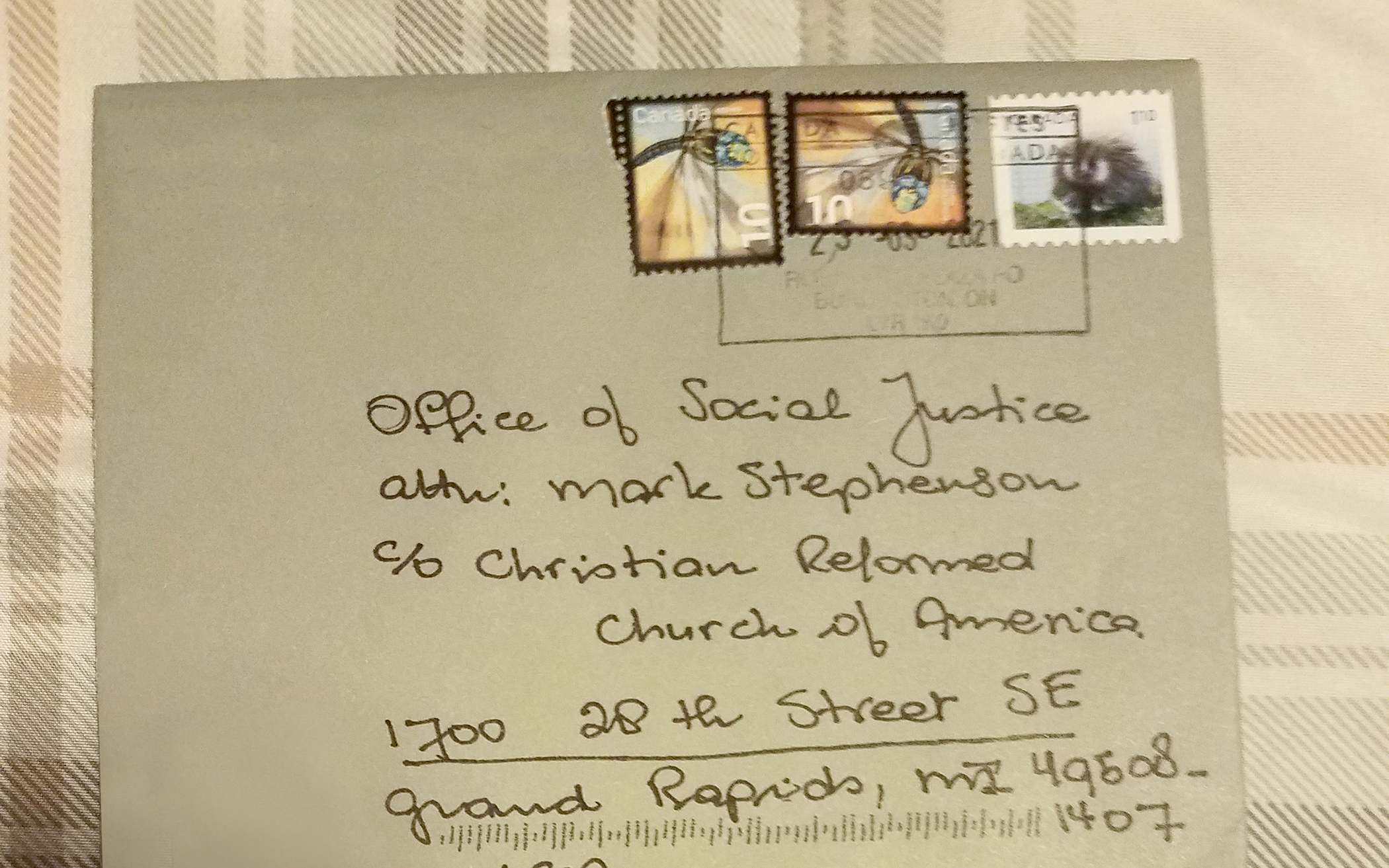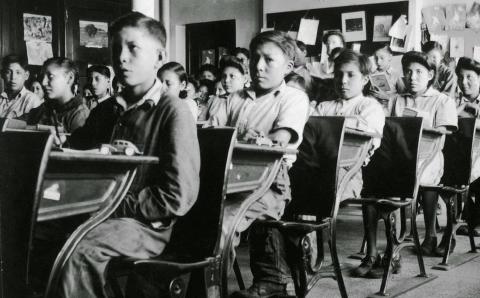From Terrace, B.C., to Bridgend, Wales, messages of encouragement, prayer, and support streamed into the Christian Reformed Church in North America’s Office of Social Justice early this year after the Council of Delegates made it known that several staff employed in CRCNA’s justice ministries had been bullied, harassed, and even threatened by those opposed to their work.
The OSJ was started in 2000 in response to the World Hunger reports adopted by synod in 1979 and 1993. Today this ministry helps CRC members love their neighbors in tangible ways by providing resources to learn about the root causes of poverty, hunger, and oppression and by empowering the church to call on those in power to improve systems and enact just public policy.
Because the work of social justice involves engaging public policies and political systems, the efforts of this ministry often encounter resistance.
“We expect differences of opinion,” Mark Stephenson, director of OSJ, told the Council of Delegates. “The problem comes when it’s not a difference of opinion but when it’s bullying and name-calling and sometimes specific threats.”
As word of this mistreatment was shared, letters of support began to stream in. Along with lamenting harm, the messages reverberated with thankfulness and encouragement for continued work toward shalom in the midst of turmoil and injustice.
“I want you to know that, for me, finding your Facebook pages has been a lifesaver during this challenging time,” wrote Karen Thompson from Alberta. “I appreciate the knowledge you share and the different perspectives you offer. If not for you I would have struggled to remain involved in ‘church’ as so much I’m hearing is against my heart and what I believe is the heart of God.”
Messages arrived by postal mail, email, and video messaging. The variety of communication forms and the geographic range of the senders depicted a network of support that speaks to what it means to be the body of Christ: a community of sisters and brothers with diverse skills, resources, and opportunities.
The notes came from individual members, congregations and councils, fellow CRC organizations, and even entire classes. One classis in Canada shared a collective message including these words: “We believe (the work of social justice) is necessary and important work and that the church needs to be engaged in this form of spreading God’s love and the good news of the gospel.”
OSJ staff were encouraged by this support as well as by the increased financial donations during this period.
Congregations continued to demonstrate support through their participation in OSJ workshops. In a recent Faith in Action training for the Climate Witness Project, staff member Cindy Stover reported on the renewed engagement of people in the U.S. and Canada after a time of decreased opportunities because of the pandemic.
“Before COVID, we used to do (legislature meetings) regularly,” she said. “We’d do it as part of delegations, taking people to Ecumenical Advocacy Days.” (Ecumenical Advocacy Days is an annual gathering of Christian advocates from around the U.S. worshiping and meeting with legislators together.) “We appreciate this groundswell of support. It helps us move forward confidently in our advocacy work, equipping both Americans and Canadians with the tools they need to feel confident connecting with their legislators on justice issues in their constituencies.”
About the Author
Megan Herrema is communications coordinator with the Office of Social Justice and Faith Formation Ministries.









